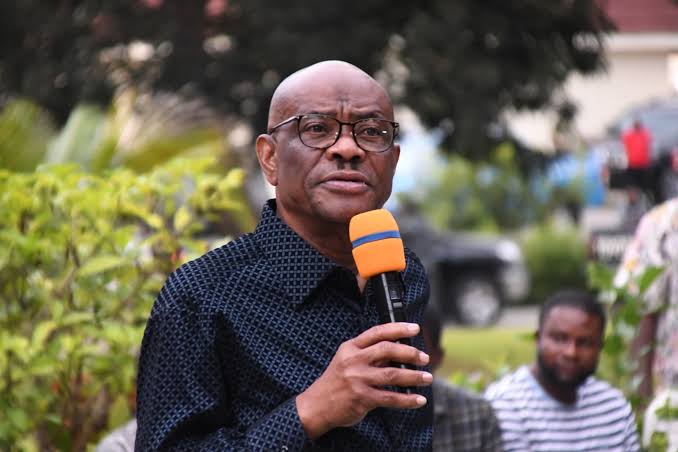The wealthy citizens of Abuja have come under fire from Nyesom Wike, the Minister of the Federal Capital Territory (FCT), who claims that they are the main barrier to voluntary tax compliance, which is necessary to provide the city’s vital infrastructure.
When the Collector Road CN2 (Zakari A. Kyari Street) was formally commissioned on June 20, 2025, Wike made this declaration. As part of events commemorating his second year in office, President Bola Tinubu officially opened the road that connects Katampe District to Ahmadu Bello Way in Mabushi.
Wike claims that while these “big men” voluntarily pay their taxes in locations like the US and London, they frequently refuse to pay ground rents and taxes in Abuja. He said the CN2 and its connected roads were made possible by the taxes and ground rentals paid by conscientious people.
Without payment, no one will supply this infrastructure. Wike stressed that taxes are the city’s primary source of funding for these initiatives.
FCT Requires Increased Revenue to Finance Development
According to Wike, Abuja only gets 1% of the Federal Government’s monthly allotment, which is insufficient to pay salaries (which have increased to almost ₦13 billion as a result of minimum wage increases) and finance infrastructure projects.
Abuja is regarded as wealthy. How much money is it? We will be unable to pay salaries if we just rely on federal funding,” he stated.
In order to promote compliance, he cautioned that citizens of the Federal Capital Territory would soon see the names of defaulters published in media and urged them to view paying taxes as a civic obligation.
Read Also: Nigeria Introduces REV-OP Initiative to Tackle Revenue Leakages, Boost Public Finance
Infrastructure is a top priority for President Tinubu and Wike.
CGC was responsible for the CN2 road project, which was flagged off in October 2024. Other connecting roads in Katampe District are single carriageways, but this one has two carriageways.
According to Federal Capital Development Authority (FCDA) Acting Executive Secretary Richard Dauda, the road was constructed to allow the district to be developed further.
Wike also inspected other ongoing projects during the inauguration, including the Judges Quarters in Katampe and the N5 Road (Obafemi Awolowo Way), which would shortly be put into service and connect Life Camp to Ring Road III.
Wike continued, “In order to continue providing the infrastructure that residents want, we need them to pay their taxes.”
The main lesson
The significance of tax compliance in the construction of Abuja’s infrastructure is underscored by Wike’s statement. Since the federal budget is insufficient, the FCT government is depending on law-abiding citizens to carry out their civic duties and contribute to the development of the city.























